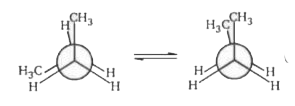Which halogen oxidizes water at room temperature but does not undergo disproportionation into it?
F2
Cl2
Br2
I2
The correct Answer is:A
To solve the question, "Which halogen oxidizes water at room temperature but does not undergo disproportionation into it?", we can follow these steps:
Step 1: Identify the Halogens
The halogens we need to consider are:
- Fluorine (F2)
- Chlorine (Cl2)
- Bromine (Br2)
- Iodine (I2)
Step 2: Analyze the Reaction of Each Halogen with Water
1. Fluorine (F2):
- Reaction: F2 + H2O → HF + 1/2 O2
- Oxidation States:
- F2 (0) → HF (-1) and O2 (+1)
- This indicates that fluorine is not undergoing disproportionation since it only changes from 0 to -1.
2. Chlorine (Cl2):
- Reaction: Cl2 + H2O → HCl + HOCl
- Oxidation States:
- Cl2 (0) → HCl (-1) and HOCl (+1)
- Chlorine is undergoing disproportionation as it changes from 0 to -1 and +1.
3. Bromine (Br2):
- Reaction: Br2 + H2O → HBr + HOBr
- Oxidation States:
- Br2 (0) → HBr (-1) and HOBr (+1)
- Bromine also undergoes disproportionation.
4. Iodine (I2):
- Reaction: I2 + H2O → No reaction at room temperature.
- Therefore, iodine does not oxidize water.
Step 3: Conclusion
From the analysis:
- Fluorine (F2) oxidizes water at room temperature without undergoing disproportionation.
- Chlorine (Cl2) and Bromine (Br2) undergo disproportionation.
- Iodine (I2) does not react.
Thus, the answer is Fluorine (F2).
Final Answer
Fluorine (F2) is the halogen that oxidizes water at room temperature but does not undergo disproportionation into it.
---
The halogens we need to consider are:
- Fluorine (F2)
- Chlorine (Cl2)
- Bromine (Br2)
- Iodine (I2)
1. Fluorine (F2):
- Reaction: F2 + H2O → HF + 1/2 O2
- Oxidation States:
- F2 (0) → HF (-1) and O2 (+1)
- This indicates that fluorine is not undergoing disproportionation since it only changes from 0 to -1.
- Reaction: Cl2 + H2O → HCl + HOCl
- Oxidation States:
- Cl2 (0) → HCl (-1) and HOCl (+1)
- Chlorine is undergoing disproportionation as it changes from 0 to -1 and +1.
- Reaction: Br2 + H2O → HBr + HOBr
- Oxidation States:
- Br2 (0) → HBr (-1) and HOBr (+1)
- Bromine also undergoes disproportionation.
- Reaction: I2 + H2O → No reaction at room temperature.
- Therefore, iodine does not oxidize water.
From the analysis:
- Fluorine (F2) oxidizes water at room temperature without undergoing disproportionation.
- Chlorine (Cl2) and Bromine (Br2) undergo disproportionation.
- Iodine (I2) does not react.
Fluorine (F2) is the halogen that oxidizes water at room temperature but does not undergo disproportionation into it.
Topper's Solved these Questions
- TYPES OF REACTIONSBOOK - VK JAISWAL ENGLISHCHAPTER - TYPES OF REACTIONSEXERCISE - LEVEL 3
44 Videos
- TYPES OF REACTIONSBOOK - VK JAISWAL ENGLISHCHAPTER - TYPES OF REACTIONSEXERCISE - ONE OR MORE ANSWERS IS/ARE CORRECT
40 Videos
- TYPES OF REACTIONSBOOK - VK JAISWAL ENGLISHCHAPTER - TYPES OF REACTIONSEXERCISE - SUBJECTIVE PROBLEMS
42 Videos
- s-BLOCK ELEMENTSBOOK - VK JAISWAL ENGLISHCHAPTER - s-BLOCK ELEMENTSEXERCISE - SUBJECTIVE PROBLEMS
2 Videos
Similar Questions
Knowledge Check
Which equilibrium is not rapid at room temperature ?
A B
B C
C D
D
The ion that cannot undergo disproportionation is :
View SolutionWhich does not undergo comproportionation reaction?
View SolutionThe least stable oxide at room temperature is
View SolutionWhich halogen oxidises water to liberate oxygen exothermally ?
View SolutionWhich fatty acid is liquid at room temperature
View SolutionAldehydes with α−H atom do not undergo disproportionation because:
View SolutionWhich of the folowing undergoes disproportionation?
View Solution
